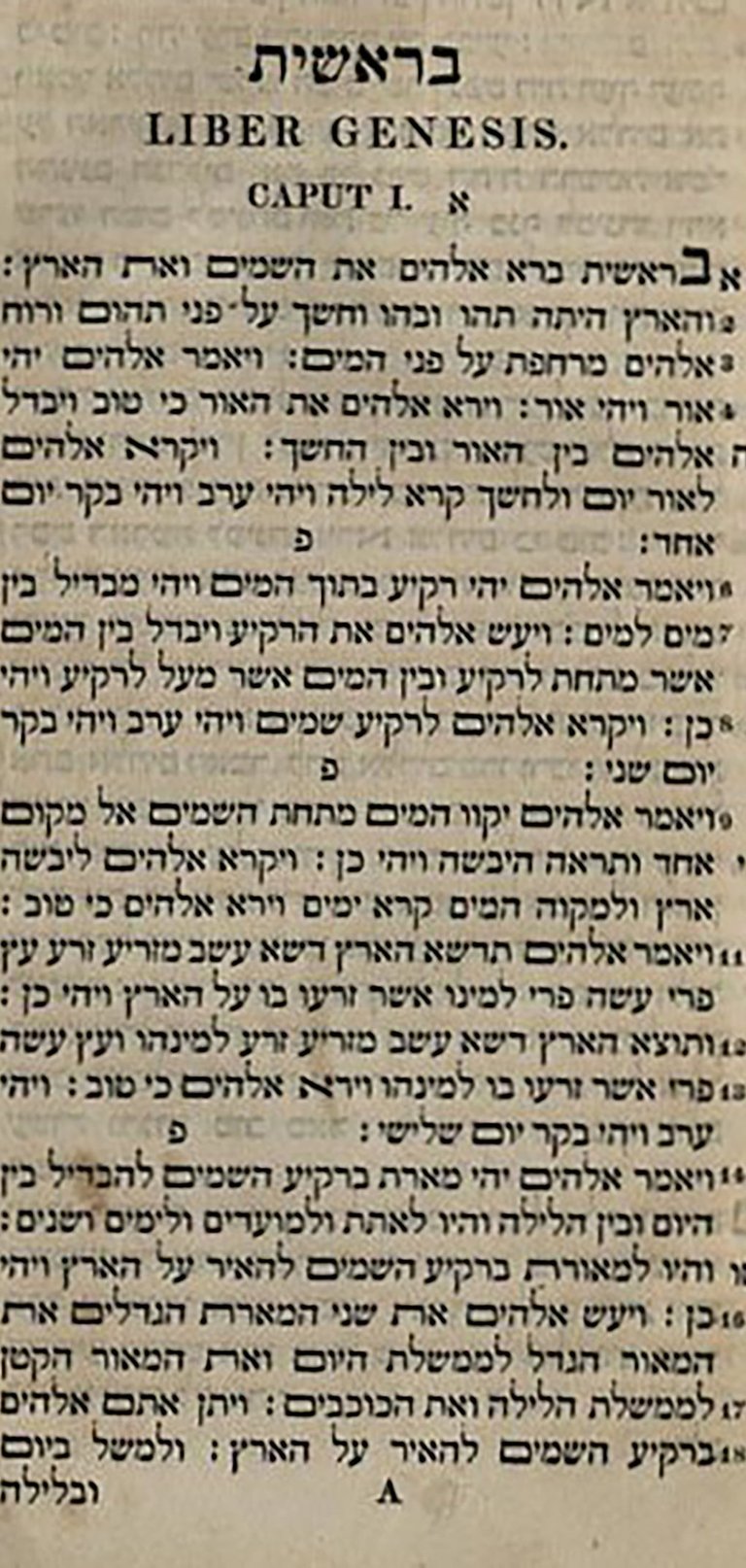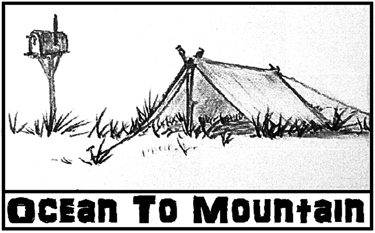Who Wrote Genesis
Jewish tradition consistently gave all credit to Moses.
Modern scholars have other ideas. Who is correct?
By Amy Joy Hess
Who wrote Genesis?
Moses. There you go.
Of course, some would disagree.
The rabbis throughout time, the Bible itself, and the Talmud all say it was Moses. Certain 19th century Germans decided they knew better and offered a different view, and that alternate view has been largely embraced by modern scholarship. I’m not going to make noise about Germans and Jews here, but I will say I'm not impressed with modern scholars on this issue.
I was taught the respected Graf-Wellhausen Documentary Hypothesis in my Jesuit high school as an alternative to the traditional view that Moses wrote the Pentateuch - the first five books of the Bible. The Documentary Hypothesis argues that the Torah was not written by Moses. Instead, what happened was this: various groups throughout Jewish history wrote this or that chunk of Jewish myth, and their traditions were eventually edited and put together about the time of Ezra. Some scholars declare that Moses is merely a legend, and others defend him as a historical figure, but the Documentary Hypothesis argues that the Pentateuch was put together from four basic sources:
·Jahwist
·Elohist
·Deuteronomical
·Priestly
The Documentary Hypothesis is often called the JEDP Hypothesis or JEDP Theory after these four sources, and the gist is that people who called God “Yahweh” (Jahweh) wrote one set of texts and people who called God “Elohim” wrote another set of texts. Then, there were priests who wrote most of the laws in Exodus and Leviticus, and Deuteronomy was written by yet another group. The intellectuals argue that there are different writing styles that indicate these were different sources. All these texts were put together in the time of Ezra, in the 5th century B.C. and boom, we have the Torah.
Do the intellectuals have any of these supposed sources? No. No such larger source material has been found preserved in jars in a cave somewhere. If they did exist, we wouldn't ever expect to find those source documents due to their antiquity. However, the reality is that the documents were imagined by men like as Julius Wellhausen.
Despite the respectability of the Documentary Hypothesis, Wellhausen and his mates do have a few challenges in tossing out Moses as mere legend. Shall we consider the evidence that they were premature in doing so? Let's.
SHE/HER
First. The five books of Moses are unique in all the Hebrew Scriptures, because they never use the “she” pronoun. The rest of the Scriptures use both “he” and “she” pronouns, but not the Torah. That’s worth noting. If the Torah were all edited and redacted and finalized during the time of Ezra, then it would have used the words “he” and “she” as was customary in that time. Also, this strange pronoun use suggests that the whole Torah was written by one rather than four groups. We’d expect to see “she” and “her” show up in at least some of the passages if we had a hodge podge of sources coming together. At the very least, the Deuteronomical folks should have given girls their own pronouns. The fact that female pronouns are not there at all? That points to a single author.
Herbert Wolf wrote, ‘Along with the overall continuity in the narrative we can also point to the grammatical features that underscore the unity of the Pentateuch. For some reason these five books fail to distinguish between the third person pronouns, “he” and “she.” Instead of using hu and hi like the rest of the Old Testament, the Pentateuch uses only the masculine form.’ [1]
Moses clearly saw girls and boys as equals.
“I WROTE IT” – Moses
Second, Moses said he wrote the Torah. Over and over, the text says, “Moses wrote all this down.” Consider the following verses.
·Exodus 24:3-4a
·Exodus 24:7
·Numbers 33:2
·Deuteronomy 31:9
·Deuteronomy 31:24-26
Deuteronomy ends with the death of Moses, and we recognize that Moses didn’t write that part. But, the whole thing stops at that point. Moses wrote these books, then he died, and that’s it. And by the way, the Talmud tells us that Joshua wrote those verses at the end to finish it all off:
"And who wrote the books of the Bible? Moses wrote his own book, i.e., the Torah, and the portion of Balaam in the Torah, and the book of Job. Joshua wrote his own book and eight verses in the Torah, which describe the death of Moses…" - Bava Batra 14b
Very sensible.
It’s foolish of intellectuals to throw out the clear, uncontested position of the Hebrew Scriptures and all of Jewish history with the hubris, the chutzpah to think they know better – without solid evidence outside their own swollen heads. It’s not like there was controversy among the Jewish scholars all those centuries. The Jews – who can argue about anything – all agreed that Moses wrote the Torah. That all by itself says something.
There’s more. Of course there’s more.
The Most Humble Man Ever
Notice how Genesis covers some 2500 years all in one book? That’s because Moses was writing a history about other people, other lives that came before him. His life? Moses’ own life takes four more books. He wrote about the Exodus and the wanderings in the desert. He wrote all the law that God gave him, and then some. He reminded the people of Israel of God’s laws in Deuteronomy and gave them warnings of blessings and curses. He messed up and didn’t get to enter the Promised Land himself, and he died. And that’s where the account ends. That’s how it is when you write about things that you yourself experienced, things you were there for. You take four books to write about yourself when you just spent one book to cover 2500 years. If Moses were less humble, he might have filled five more books.
Names of God
The general denial of Moses' authorship got going because Genesis 1 uses the term “Elohim” – the generic name “God”, and Genesis 2 uses the name “Yahweh” – which is the personal name of God. The intellectuals think, “Woah! Two different accounts were stuck together, and they used two different names for God.”
Now, I'm perfectly comfortable with suggesting Moses used different historic accounts when compiling Genesis. He might have used accounts handed down from Adam or Noah or Shem, which is why he mentioned the book of the generations of Adam in Genesis 5:1. It might be that every time Genesis mentions the “generations” of so and so, it’s actually referring to the history given by those people, and Genesis 5:1 ends the Book of Adam. If Adam really were created in perfection without any genetic defects and lived 930 years, I believe he'd have developed a way to write. There’s a lot a person could figure out in 930 years.
That's speculation, but here's what's not speculation: different names for God do not demand different authors.
Consider when Moses is talking to God at the Burning Bush. Both names are used in one verse - both Elohim “God” and Yahweh, God’s personal name to the Israelites.
“And God said moreover unto Moses, Thus shalt thou say unto the children of Israel, The LORD God of your fathers, the God of Abraham, the God of Isaac, and the God of Jacob, hath sent me unto you: this is my name for ever, and this is my memorial unto all generations.” -Exodus 3:15
Hebrew writers often used specific names for God according to what He was doing in the context of a passage. Isaiah does it all the time. “Yahweh of Hosts” is what Isaiah calls God when he’s talking about military matters, but "Lord Yahweh" is the title Isaiah uses when God has tenderness toward Israel, like in Isaiah 25:8 when God promises to wipe away all the tears from our faces. Isaiah's favorite term is "Holy One of Israel" which deals with God's power and holiness.
The Hebrew term “el” is a word translated “god” – but it has a sense of might and power. Moses calls God “Elohim” when He is busy creating the universe from scratch, showing His great power. However, Moses calls God “Yahweh” in the more personal description of creation in Genesis chapter 2, when we see God forming humankind from the earth before He planted Eden for their home.
Clearly, the only way Moses would know what happened at the Creation of the World was to get that information from the Creator Himself. And if there's anybody on Earth to would be allowed that insight, it was Moses. Moses of all people in the whole world talked to God face to face. (Exodus 33:11, Numbers 12:6-8)
Anyway, the fact that Moses used different names for God is not a big deal.
Hebrew Poetry
The proponents of the Documentary Hypothesis often point out repetitions in the Hebrew text as evidence of multiple sources. They say, “This is clearly two accounts squished together!” Sadly, this demonstrates their poor understanding of stylized Hebrew writing. Hebrew literature uses repetitions all the time. It’s on purpose. There’s something called chiastic structure – like a poetry palindrome, the same backward as forward. Moses uses chiastic structure a lot, which involved repetition as a purposeful writing style, and it shows the text was written by one person.
For instance, Genesis 7:21 has been assigned to P and Genesis 7:22 to J, because there’s an echo in content.
And all flesh died that moved on the earth: birds and cattle and beasts and every creeping thing that creeps on the earth, and every man. – Genesis 7:21
All in whose nostrils was the breath of the spirit of life, all that was on the dry land, died. – Genesis 7:22
This repetition is the same forward and backward, and it’s on purpose. It’s a carefully constructed writing style.
All flesh died
that moved on the earth
all the birds and animals and man
all in whose nostrils was the breath of life
all that was on dry land
Died
Bible scholar Francis Andersen explains, “The rhetorical effect of this kind of epic repetition is to slow down the pace of the narrative. It holds the picture a little longer and enforces it on the mind.”[2] Andersen says the Flood narrative was written in a highly artistic fashion that points solidly to a single author.
These highly stylized passages demonstrate careful construction by a single author, and Genesis is filled with them. They do not give evidence of multiple sources but exactly the opposite.
The bottom line is this: we don’t have to worship scholars who want to tear apart the Bible. We should weight the merits of their ideas, but self-proclaimed intellectuals are not always full of knowledge. Sometimes they’re full of their own egos. As Paul wrote in Romans 1: “Professing themselves to be wise, they became fools.”
What Jesus Said
Oh. And by the way, Jesus Christ repeatedly said Moses wrote the Torah. I'll trust His opinion before I trust self-proclaimed intellectuals.
1) Wolf, H. (1991). An Introduction to the Old Testament Pentateuch (p. 20). Chicago: Moody
2) Andersen, F. (1974).The Sentence in Biblical Hebrew (p. 40). The Hague: Mouton Publishers.


